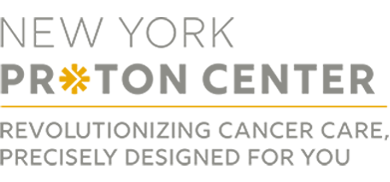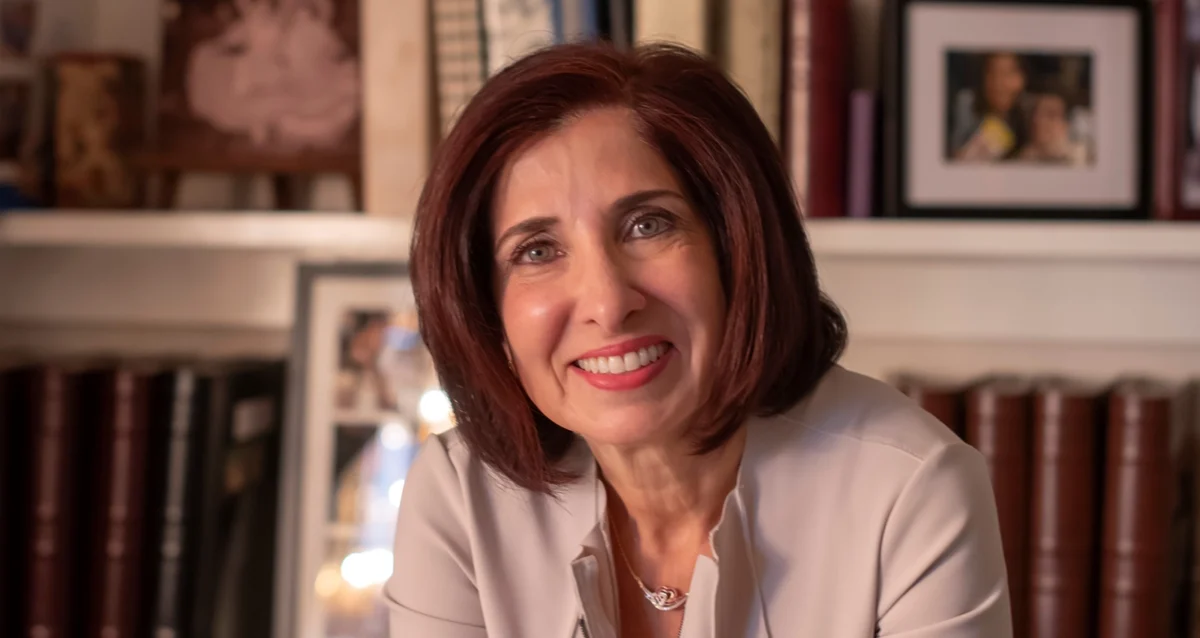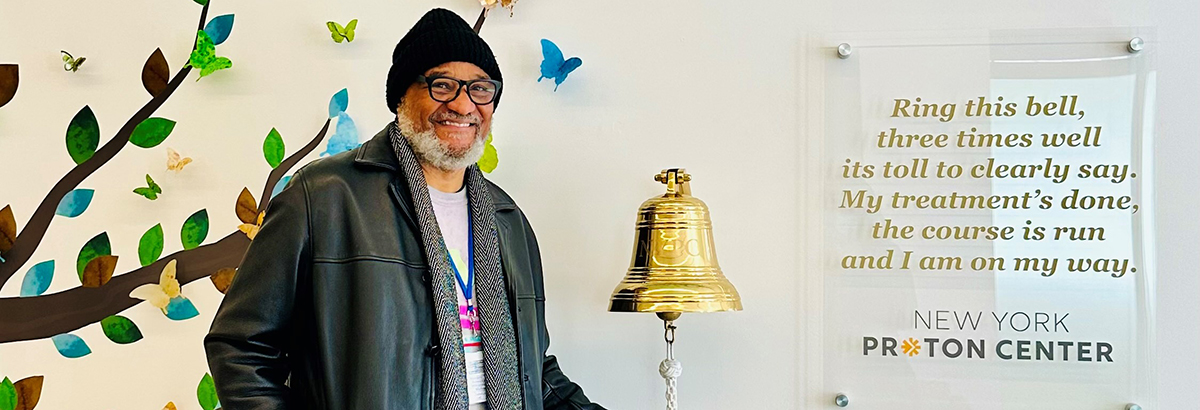Head & Neck Cancer: Meet Allen
As a Painful Journey Ends, A Promising One Beckons
When Allen Zimmerman received treatment at the New York Proton Center (NYPC) in March 2021, it marked the culmination of a difficult 28-year journey through various bouts of head and neck cancer. The toll on his mind and body had been a heavy one: removal of his teeth, ear canal and a portion of his tongue, months spent on a feeding tube and – most noticeably – a significant deterioration in his ability to speak.
But Allen, now 71 and living in the Park Slope neighborhood of Brooklyn, has come to realize that his most difficult days are behind him. He’s healthier, more content with his life and increasingly optimistic about the future – an optimism he largely owes to the world-class treatment he received at the NYPC.
“I’m trying to enjoy myself again, enjoy my family and my friends. “I’m venturing back out into the world.”
Treatment Takes Its Toll
Allen first learned in 1993 that he had squamous cell cancer in his tonsils. He underwent radical neck dissection and a prolonged course of conventional photon radiation that rendered him largely unable to swallow, resulting in a 70-pound weight loss in six months. A number of other treatments followed, along with accompanying side effects—loss of saliva, severe headaches, and crumbling teeth. The extraction of his teeth necessitated 20 hyperbaric oxygen sessions, one of which led to bleeding from his eardrums. Then came a second bout of cancer in 2012, first evidenced by a sore on his tongue and confirmed via biopsy to be another squamous cell carcinoma. A part of his tongue was removed, and a feeding tube was inserted in his stomach that remained for several months.
The Very Warmest Welcome. The Very Best Treatment.
In 2020 Allen was diagnosed with yet another cancer, this time in his ear canal. In response, a team of doctors at Mount Sinai’s Tisch Cancer Institute—one of the nation’s most respected cancer centers and a partner of NYPC—rallied to his support. They included oncologist Dr. Marshall Posner, otolaryngologist Dr. Marita Teng, neurotologist Dr. Enrique Perez, and radiation oncologist Dr. Richard Bakst, who ultimately treated Allen with proton therapy at NYPC.
“I felt it was the right decision,” Allen said. From the moment Allen set foot in the lobby of NYPC, he sensed a marked difference from his previous experiences at other healthcare facilities. The atmosphere was warm and inviting. There were affectionate greetings from the receptionists at the front desk, access to drinks and snacks, and an overall sense of comfort and camaraderie. “
The whole initial impression was just amazing,” he said. “The support was everywhere—social workers, nutritional guidance, pain relief. I was very surprised and just thrilled by the level of attention and care.”
In particular, Allen praises Chrissy Rubin, a social worker on staff who also helped coordinate his transportation to and from the center.
“The amount of kindness and support I received from Chrissy was more than I could have imagined. She helped me in so many ways. Plus Laura (Wang), the nutritionist, was also extremely helpful. She understood I’d already had decades of issues with chewing and swallowing, so I was so very happy to get advice from her.” He also speaks fondly of others who were so helpful, including nurses Marlene and Dixie, and radiation “shepherds” (therapists) Jason and Kalmen.
And of course Allen’s treatment had far fewer side effects than his previous photon radiation, since the proton beams were able to target his tumor with exceptional precision while largely sparing healthy tissues and organs. Moreover, each session required him to spend just six or seven minutes laying comfortably on the treatment table, whereas his previous treatments could take up to an hour, during which time he was strapped to a table he says felt like “plywood.”
“I was surprised at how painless, manageable and relaxed the whole thing was,” he says.
“Given his prior radiation and the challenges we face when re-irradiating in the head and neck region, Allen was the ideal candidate for proton beam therapy,” Dr. Bakst said. “He handled the treatment remarkably well and recovered much quicker than anticipated.”
What Tomorrow Brings
Upon completing his treatment in April 2021, Allen had hoped his social life would again flourish. And although those plans were almost totally upended by the ongoing pandemic, the tide is gradually beginning to turn.
“Recently, I was finally able to meet up with a house full of people, all vaccinated, mask-less, for the first time since the pandemic hit. I’ve had some dinners with friends. Plus I recently had a family gathering for my mother-in-law’s 100th birthday.
“Basically, I’m just slowly getting back to living.”



